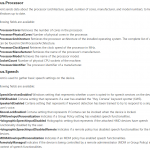Oracle Petitions FCC To Reconsider Broadband Privacy Rules
by Wendy Davis@wendyndavis, December 21, 2016
Software corporation Oracle is asking the Federal Communications Commission to reconsider the sweeping broadband privacy rules passed earlier this year.
Oracle, which spent years unsuccessfully attempting to prove that Google’s Android code infringes copyright, says the FCC’s recent order on privacy will give Google an unfair advantage against Internet service providers.
“The Commission cannot allow the order to stand, when it hands a clear victory to Google by hamstringing ISPs while allowing Google to continue to engage in invasive data collection and aggregation techniques, bolstered by its tight control of the Android operating system,” Oracle said Wednesday in a petition asking the FCC to reconsider the ruling.
The rules, passed in October by a 3-2 vote, prohibit Internet service providers from drawing on information about subscribers’ Web activity and app usage for ad targeting, without their opt-in consent.
The regulations apply only to companies that provide consumers with access to broadband, like Comcast, Time Warner and Verizon. Online publishers, search engines, social networks and other so-called “edge providers” are not required to follow the FCC rules. Instead, those companies generally adhere to an industry code that allows consumers to opt out of receiving targeted ads based on Web-surfing data. (The self-regulatory code also requires companies to seek opt-in consent from consumers before drawing on a narrow category of “sensitive” data, including financial account information, geolocation data and certain types of healthcare information.)
When the FCC was considering the rules, critics of the planned regulations argued that broadband providers shouldn’t be held to tougher privacy standards than other online companies like Google and Facebook.
But privacy advocates countered that broadband carriers should be subject to stringent rules, because carriers have comprehensive information about consumers’ activity — including knowledge about all unencrypted sites visited by subscribers, as well as people’s usage patterns.
Oracle says in its petition that the FCC failed to consider “Google’s massive information-gathering capabilities” when crafting the privacy rules.
“Google already has the ability to track virtually every movement of a consumer’s day through an Android phone or tablet,” Oracle writes. “It has created a proprietary Android world to derive substantial economic benefit from advertising and –- perhaps even more importantly — obtain access to huge amounts of personal data through search, location tracking, and other activities.”
Google itself opposed the FCC’s privacy rules. The company argued to the FCC earlier this year that broadband providers should only be required to obtain users’ opt-in consent before drawing on their “sensitive” data — including health information and precise locations — for ad targeting.
MediaPost.com: Search Marketing Daily
(22)













